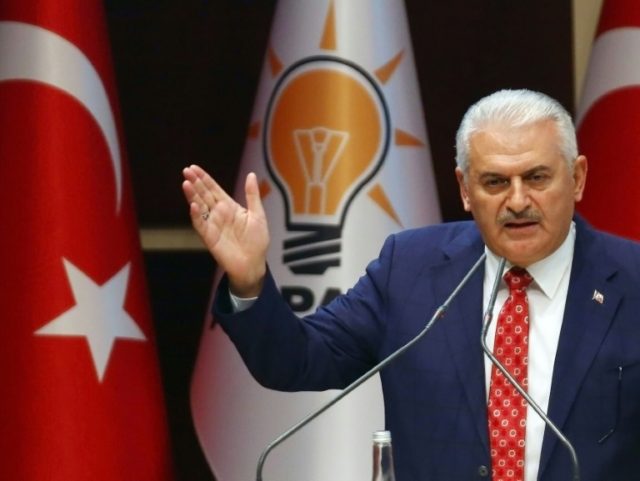Istanbul (AFP) – Turkey on Friday said Germany was still a key ally despite Ankara’s fury over a parliament resolution that recognised the mass killings of Armenians by Ottoman forces as genocide.
Seeking to keep the dispute from erupting into a full-blown crisis, Turkish Prime Minister Binali Yildirim emphasised the key relationship would continue while Berlin said ties were strong enough to weather splits.
The German lower house on Thursday passed a non-binding resolution recognising the mass killings of Armenians from 1915 under the Ottoman Empire as genocide, prompting Ankara to recall its ambassador from Berlin for consultations.
The dispute sparked alarm over the potential damage to relations between Turkey and Germany at a sensitive time when the two sides are working together to implement a deal seeking to halt illegal migration to the EU.
“Germany and Turkey are two very important allies. No one should expect that relations will suddenly deteriorate completely because of this decision or similar decisions,” Yildirim said.
“Whatever the circumstances, we will continue the relationship with our friends and our allies,” he added.
– ‘Weather differences’ –
Pointing to a counter resolution passed by the Turkish parliament condemning its German counterpart, he said Turkey would react and said ties had been “seriously damaged.”
President Recep Tayyip Erdogan warned on Thursday that the motion would “seriously affect” ties between the countries and said he would take further action when he returned to Turkey from a visit to Kenya.
Yildirm was heading on a trip to Turkey’s top ally Azerbaijan which is locked in an explosive dispute with Yerevan over the Armenian-controlled territory of Nagorny-Karabakh, seized from Baku in a war after the fall of the USSR.
But Yildirim emphasised that less than half of the lawmakers in the Bundestag were present for the vote.
Despite the resolution having cross-party support, top figures like Chancellor Angela Merkel and Foreign Minister Frank-Walter Steinmeier were all absent for the vote.
Merkel’s spokesman Steffen Seibert described the relationship as “very broad and very deep”, saying such ties “can and will weather any differences in opinion.”
The use of the word “genocide” goes to the heart of a long-running battle for world opinion between Armenia and Turkey over the massacres committed a century ago.
Armenia has led a decades-long campaign to have the bloodshed characterised as genocide, which Turkey rejects as a gross injustice.
Ankara argues the killings were a collective tragedy in which equal numbers of Turks and Armenians died.
Beyond recalling the ambassador, it was not clear what concrete action Ankara could take against Berlin, and EU capitals will hope there is no knock-on effect on the controversial deal aimed at stemming the flow of migrants through Turkey.
“In the medium term, Germany and Turkey have deep-rooted intrinsic links which will not disappear from one day to the other,” said Samim Akgonul, political scientist at France’s Strasbourg University, adding Turkey had a tendency to “blow hot and cold” over the issue.
However many top officials and the press made no secret of their anger, with some implying Germany wanted to hide its own guilt for the Holocaust.
Erdogan’s spokesman Ibrahim Kalin said Germany wanted to say “‘I am not the only one that committed genocide’.”
Justice Minister Bekir Bozdag said: “You (Germany) burned the Jews in the ovens. And then you accuse the Turkish people of the slander of genocide. Look at your own history.”
– ‘Hitler’s grandchildren’ –
Turkey’s secular and pro-Islamic press were for once united in condemnation of the resolution with the mainstream Hurriyet daily screaming “Shame on You!” in its headline.
“Dummkopf!” said the pro-Erdogan Aksam. “The Germans, who introduced genocide, said yes to a stupid law.” “Hitler’s grandchildren accused Turkey of genocide,” said the opposition Sozcu, adding a picture of Merkel in Nazi uniform with a Hitler moustache.
“Our comrades-in-arms (from World War I) stabbed us in the back,” added the pro-government Sabah.
At the time of the killings in World War I, the Ottoman Empire and Imperial Germany were allies and the resolution put partial blame on Germany for failing to prevent the massacres.

COMMENTS
Please let us know if you're having issues with commenting.